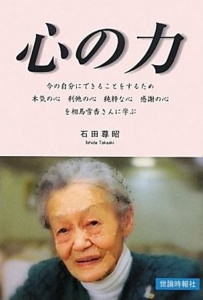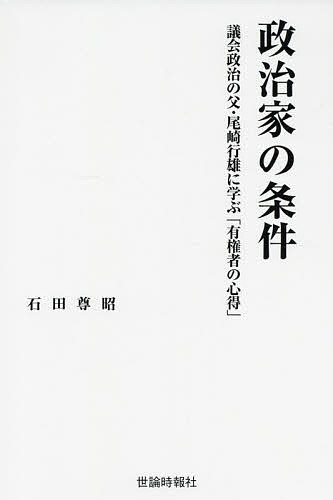In March 2016 INPS-IDN reported the lawsuit proceedings the Republic of the Marshall Islands (RMI) had filed with the International Court of Justice (ICJ) in The Hague to hold the nine nuclear weapons states – U.S., Russia, UK, France, China, Israel, India, Pakistan and North Korea – accountable to their disarmament commitments. ICJ is the principal judicial organ of the United Nations,
World’s Highest Court Addresses Nuclear Disarmament
By Ramesh Jaura
THE HAGUE (IDN) – Aided by a team of eminent international lawyers and backed by staunch proponents of ‘nuclear zero’, the tiny but resolute Pacific Republic of the Marshall Islands (RMI) wants the International Court of Justice (ICJ), principal judicial organ of the United Nations, to hold the nine nuclear weapons states – U.S., Russia, UK, France, China, Israel, India, Pakistan and North Korea – accountable to their disarmament commitments.
These are the first contentious cases about nuclear disarmament to be brought before the world’s highest court, said Rick Wayman, Director of Programs at the Nuclear Age Peace Foundation. JAPANESE TEXT VERSION PDF
The Marshall Islands filed lawsuits against all nine nuclear weapons countries in April 2014. But the U.S., Russia, China, France, Israel and North Korea do not accept the compulsory jurisdiction of the ICJ and are ignoring the cases brought against them. Only India, Pakistan and UK accept.
The RMI claims that the nuclear-armed nations are in breach of nuclear disarmament obligations under existing international law. This applies to the P5 (permanent members of the UN Security Council: U.S., Russia, UK, France and China) that are signatories to the nuclear Non-Proliferation Treaty (NPT) as well as to the four non-NPT signatories (Israel, India, Pakistan and North Korea) under customary international law.
In his 2009 five-point proposal, UN Secretary-General Ban Ki-moon had urged “all NPT parties, in particular the nuclear-weapon-states, to fulfil their obligation under the treaty to undertake negotiations on effective measures leading to nuclear disarmament”.
The public hearings at the ICJ were preceded by the Open Ended Working Group’s first meeting in February 22-26, 2016 in Geneva, which did not succeed in breaking the stalemate on nuclear weapons disarmament.
“We are, basically, asking the Court to tell the respondent states to live up to their obligations under international law and to conduct negotiations leading to the required result: nuclear disarmament in all its aspects,” said Phon van den Biesen, Co-Agent for the RMI and attorney at law in Amsterdam, who is leading the International Legal Team.
In particular, the RMI is asking the ICJ to follow up on its earlier findings in the Advisory Opinion it delivered in 1996 on the illegality of the threat or use of nuclear weapons. At the time the Court considered that the continued international debate on the legality of these deadly weapons threatens the stability of the international order.
It added that “the long-promised complete nuclear disarmament appears to be the most appropriate means” to put an end to that untenable situation. (para. 98, http://www.icj-cij.org/docket/files/95/7495.pdf)
The ICJ concludes on March 16 a series of public hearings that started on March 7 with a view to determining whether it has the authority to adjudicate the matter. Indications are that the Court will take several months to announce its decision.
“From a legal perspective, the issues presented by these cases are ordinary ones, but a positive outcome will, spectacularly, change the world,” said van den Biesen.
UK, India and Pakistan strongly object to the “admissibility and jurisdiction” of the ICJ in the case filed by the RMI. UK argues that in common with the other NPT parties, it acknowledges its obligation under Article VI of the treaty and work towards disarmament. India insists that the NPT is discriminatory, de facto allowing the P5 modernize their nuclear weapons.
The minimum the international lawyers supporting the RMI’s former Foreign Minister Tony de Brum, expect of the ICJ is to reiterate the ICJ’s non-binding 1996 advisory opinion on nuclear weapons, which said that states are legally obliged “to pursue in good faith and bring to a conclusion negotiations leading to nuclear disarmament in all its aspects under strict and effective international control”.
The RMI is home to the Bikini Atoll nuclear testing grounds. Along with Hiroshima and Nagasaki in Japan, which suffered atomic bombings in 1945, the RMI is one among few non-nuclear-armed states in the world to see the devastation of nuclear weapons at close range.
According to the United States embassy in the Marshall Islands, the U.S. government carried out 67 nuclear explosive tests between 1946 and 1958, including the infamous Castle Bravo test, which, at 15 megatons, involved the most powerful U.S. nuclear device ever to see atmospheric testing, writes Ankit Panda.
The size of the Castle Bravo test on March 1, 1954 far exceeded expectations, causing widespread radioactive contamination. The fallout spread traces of radioactive material as far as Australia, India and Japan, and even the United States and parts of Europe. Though organized as a secret test, Castle Bravo quickly became an international incident, prompting calls for a ban on the atmospheric testing of thermonuclear devices.
The RMI’s former Foreign Minister Tony de Brum narrated his experience witnessing U.S. nuclear tests in the Marshall Islands as a child: “The entire sky turned blood red,” he said, adding that islands were “vaporized” by nuclear weapons testing.
“Our people have suffered the catastrophic and irreparable damage of these weapons and we vow to fight so that no one else on earth will ever again experience these atrocities,” he added.
Despite the lawsuits, the Marshall Islands and the United States maintain good diplomatic relations under their 1983 Compact of Free Association, which grants the United States responsibility for the islands’ security and defence needs.
Explaining the RMI’s motivation to turn to the ICJ, Tony de Brum said: “I have seen with my very own eyes nuclear devastation and know with conviction that nuclear weapons must never again be visited upon humanity. Nuclear weapons are a senseless threat to survival and there are basic norms that compel those who possess them to pursue and achieve their elimination. This is the subject of legal action by my country at the International Court of Justice.”
Kazuo Ishiwatari, Vice Executive Director of the Peace and Global Issues at Soka Gakkai International (SGI) said: “We need to raise public awareness about nuclear weapons and the consequences of their use . . . Access to knowledge empowers people to work more effectively for a world without nuclear weapons. Ultimately, we need to see that our choice is between systems of national security premised on the suffering and sacrifice of ordinary citizens and ways of thinking and acting that prioritize human security.”
Explaining the rationale, SGI President Daisaku Ikeda declared in his 2016 annual Peace Proposal: “If nuclear weapons were to be used in a hostile exchange in any corner of the world, the impact – whether in terms of the number of lives lost or the number of people who would suffer aftereffects – staggers the imagination.”
Because in the world today, there are more than 15,000 nuclear weapons. Their use could render meaningless in an instant all of humankind’s efforts to resolve global problems.
“Taking the example of the refugee crisis,” wrote Ikeda, “the consequences of a nuclear explosion would cross national borders, in all likelihood creating a humanitarian crisis of far greater proportion than the current 60 million refugees. Hundreds of millions of people might find themselves fleeing for safety.”
In fact, recent research warns of the devastating impact of even a geographically limited nuclear exchange on the global ecology; the impact on the world’s climate would undermine food production, resulting in a “nuclear famine”. [IDN-InDepthNews – 13 March 2016]
IDN is the flagship of International Press Syndicate.
Photo: ICJ














